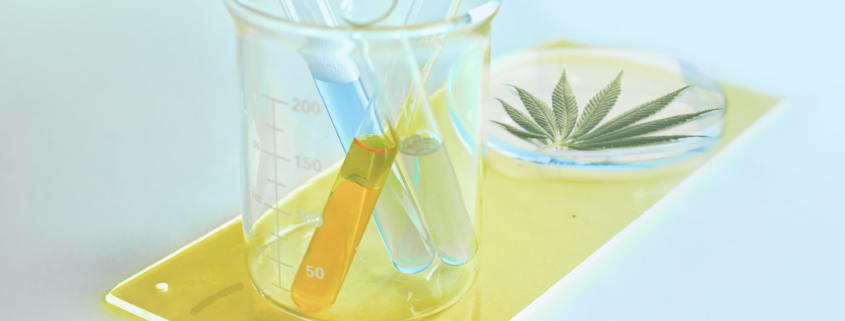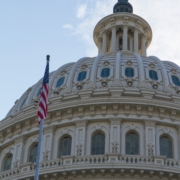Reading the Sativa Leaves: Between the Lines of the FDA’s Report to Congress on Hemp and CBD Testing
On July 8, 2020, the United States Food and Drug Administration (FDA) recently issued a highly anticipated report to Congress regarding the results of its preliminary campaign of testing of cannabidiol (CBD) products on the market for both mislabeling and adulteration. Although the authors of the report were careful to include numerous caveats about the conclusions that can be drawn from the report[1], the report does provide some potential indications about the future of the industry.
In its report—mandated by the 2018 Farm Bill which federally legalized hemp and CBD derived from hemp—the FDA found, broadly speaking, that adulteration of CBD with potentially harmful chemicals like heavy metals and pesticides was not significant. On the other hand, the report indicated a potentially more widespread problem with mislabeling of CBD products—particularly so regarding inaccurate label representations of the amount of CBD contained in the product.
Overall, given the ocean of caveats that necessarily accompany it, the FDA report—read within its four corners—is not particularly illuminating. However, it could be a bellwether for the future direction of FDA regulation of hemp and CBD products. Despite the fact that the 2018 Farm Bill legalized hemp and hemp-derived CBD, the FDA’s sluggishness to adopt regulations has placed hemp and CBD businesses in an awkward legal netherworld. Hemp businesses often find financial institutions unwilling to lend to them, despite urging from industry groups and the 2018 Farm Bill’s congressional sponsors, because of the risks associated with banking for an as-yet unregulated industry.[2] Moreover, recent court decisions dismissing or staying litigation surrounding hemp and CBD businesses until the FDA issues its regulations pursuant to the “primary jurisdiction” doctrine have underscored the urgency for the FDA to take action. As a result, anticipating where the FDA will focus its regulatory and enforcement powers can be valuable for a hemp/CBD business looking to allocate limited compliance resources.
The FDA report collates two sets of testing performed by the FDA—“historical” testing from 2014 to 2018, conducted prior to the enactment of the 2018 Farm Bill, and testing from 2019 conducted in response to the enactment of the 2018 Farm Bill.
The historical testing was geared toward identifying the presence of various types of cannabinoids in CBD products on the market. Throughout the four-year period, the FDA selected 78 CBD products for inclusion in testing not on a random basis, but rather on several qualitative factors, including but not limited to: products that were widely available commercially, products that made strong health claims, and products about which the FDA had received complaints. A subgroup of 23 of the 78 CBD products were tested for consistency with their labels. Only eight of the 23 CBD products (35%) accurately stated on their packaging the amount of CBD they contained.
The FDA also tested these products for the presence of THC. THC presence rose and fell during the 2014 to 2018 period as follows: 2014 – 39%; 2015 – 83%; 2016 – 68%; 2017 – 25%; 2018 – 33%.
The 2019 study resulted from the FDA’s selection of 34 CBD products for testing both for cannabinoid content and for the presence of adulterants such as heavy metals. Like the historical studies, these products were not selected randomly, but were instead selected in response to “consumer and industry complaints . . . and [informed by] online surveillance.”
As for the adulterant testing, the FDA analyzed the 34 products for the presence of, among other things, heavy metal elements such as lead and arsenic. The FDA concluded that the “levels found in these 34 products did not raise significant public health concerns.”
As for the 2019 mislabeling testing, much like the historical testing, the FDA found evidence of CBD product packaging misstating the amount of CBD present in the product. The FDA tested 31 of the 34 products for cannabinoids. Of the 31 products, only 21 affirmatively stated the amount of CBD in the product. Of those 21 products, only seven (33%) stated the amount of CBD “within 20 percent of the amount indicated.” Furthermore, 48% of the 31 products tested for cannabinoids contained THC. However, despite what seem to be statistics indicating a widespread problem with labeling, the FDA was careful to include the disclaimer that “[t]he results obtained for these 34 products is from a limited sample size and cannot be used to draw definitive conclusions and further testing is warranted.”
The FDA also included a report on its in-progress 2020 testing, which the FDA has broken into “near-term” and “long-term” testing. This time, the FDA took a stab at randomizing its samples by purchasing 200 CBD products randomly selected from a 500-product list generated from the FDA’s online research. The FDA tested 147 of these 200 products for cannabinoids, while 133 of those 147 were also tested for arsenic, cadmium, mercury, and lead.
Consistent with the 2019 study, 132 of the 133 products tested were free of heavy metals. As for the labeling testing, of the 102 products that indicated a specific amount of CBD in their packaging, 18 products contained less than 80% of the amount of CBD indicated, 46 products contained CBD within 20% of the amount indicated, and 38 products contained more than 120% of the amount indicated. 72 of the 147 products contained THC or THCA above the .03% legal threshold imposed by the 2018 Farm Bill.
In particular, based on the results of its testing so far, the FDA seems likely to focus its regulatory and enforcement efforts on the recurring mislabeling issue. Although the studies summarized in the report were commissioned to evaluate concerns over both adulteration and mislabeling, the adulteration issue takes a definitive backseat in the FDA’s discussion because most samples tested by the FDA disclosed insignificant levels of heavy metal adulterants. The FDA’s data, however flawed, does show frequent mislabeling of the CBD content of the products. Having impliedly recognized this as a problem, the FDA now must choose how lenient to be to the CBD/hemp industry in drafting their regulations. That is, the FDA will likely draft a margin for error into the regulations regarding packaging and labeling claims for the concentration of CBD in a given product. The FDA could take its cues from the California regulations for THC content label claims and provide that a product is in compliance as long as the claimed CBD content is within 10% accuracy in either direction. 16 Cal. Code Regs. § 5307.1(a). However, the FDA could easily go above or below the 10% variance figure depending on the results of their further testing and/or political pressure.
Regardless of where the FDA’s regulations land, it seems clear that mislabeling of CBD concentrations will be top of mind for both regulators and plaintiffs’ attorneys. In light of that, hemp and CBD businesses should make sure to invest in reputable and repeatable testing to ensure that the actual CBD content of their products is as close as possible to the amount of CBD claimed on the product’s label or packaging.
[1] These difficulties in accurate measurements are in part a feature, not a bug, of the cannabis and hemp systems, because testing protocols in the industry are far from uniform and two tests of the same substance can generate widely varying results.
[2] However, FinCEN did recently issue guidance to the financial industry stating that Suspicious Activity Reports are not automatically required for transactions involving hemp business.










